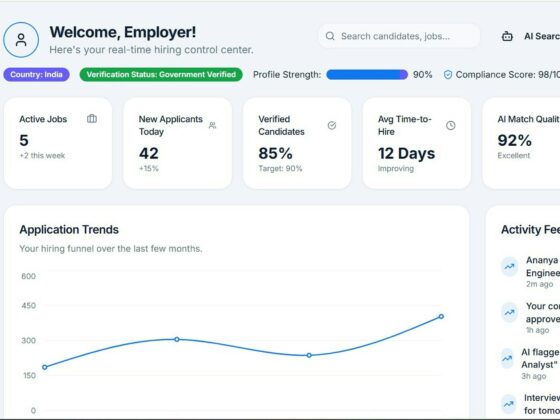
Picture this: A potential guest lands on your hotel’s website, excited to book their stay. The photos look great, the amenities sound perfect but the moment they interact with your booking engine, the excitement fizzles out. A clunky user interface, limited availability search options and a confusing checkout process send them packing – straight to an OTA or a competitor. This is a scenario happening across countless hotel websites, costing the industry billions in lost revenue.
Let’s unpack why this is happening and, more importantly, what you can do to fix it.
[embedded content]
The State of Booking Engines: Outdated and Inadequate
A recent report by h2c revealed alarming statistics: 78% of hoteliers believe their booking engines are outdated and over 60% feel they are inadequate for supporting direct bookings. These numbers underline the critical need for modernization and innovation in booking technology.
Key Challenges:
- Poor User Experience (UX): Booking engines often feel clunky and outdated compared to the seamless interfaces of online retail platforms. This frustrates potential guests and hampers conversions.
- Lack of Optimization Tools: Many booking engines fail to evolve over time. Essential features like real-time performance tracking, A/B testing and adaptive user flows are missing, leaving hotels with little room for improvement.
- Integration Challenges: A lack of communication between booking engines and other systems – like PMS, CRM and channel managers – creates operational inefficiencies and disrupts the guest experience.
The Price of Poor Performance
Outdated booking engines not only frustrate guests but also bleed revenue. Let’s examine the key ways this happens:
1. Conversion Drop-Offs:
Guests abandon their bookings when the process is slow, unintuitive or riddled with friction points. Every click that doesn’t add value increases the likelihood of abandonment.
2. Revenue Leakage:
Dead ends in the booking flow – such as unavailable search results with no alternative suggestions – push guests to OTAs or competitors. This is a major blow to direct revenue.
3. Mobile Inadequacy:
With over 55% of bookings now made on mobile devices, engines that aren’t mobile-optimized miss out on this crucial audience segment. Mobile users expect seamless navigation and simple payment options, and failing to deliver these can cost you bookings.
What Guests Expect from a Booking Engine
Today’s travelers are discerning and demand more from their online booking experiences. Here’s what they value most:
- Seamless UX: A fast, intuitive interface that mirrors the best practices of leading e-commerce platforms.
- Mobile Optimization: Fully responsive designs that ensure the booking process is smooth and efficient across all devices.
- Personalization: Dynamic content, tailored recommendations and exclusive promotions based on browsing behavior and guest preferences.
- Flexible Search Options: Features like adjustable dates, alternative room packages and add-ons that enhance the booking experience.
Steps to Fix Your Booking Engine
The solution to these challenges lies in adopting a modern, guest-centric approach to your booking engine. Here’s how to get started:
1. Invest in a Modern UX:
- Redesign your booking engine with user behavior at the forefront. Simplify navigation, reduce unnecessary steps and ensure a clean, attractive interface.
- Consider solutions like SHR’s Embedded Booking Engine, which keeps users on your website and delivers a seamless, brand-immersive experience. By eliminating redirections, it enhances both guest satisfaction and conversion rates.
- Optimize your engine for speed, ensuring compatibility across all devices and browsers.
2. Leverage Optimization Tools:
- Implement real-time reporting to identify pain points in your booking flow. Metrics like drop-off rates and page load times are invaluable for continuous improvement.
- Use A/B testing to experiment with different layouts, features and call-to-action placements.
3. Prioritize Mobile-First Design:
- Ensure your booking engine delivers a frictionless experience for mobile users. Focus on touch-friendly navigation and fast-loading pages.
- Simplify payment processes with mobile-friendly options like Apple Pay, Google Pay or regional payment solutions to cater to a global audience.
4. Enhance System Integrations:
- Work with tech partners to create seamless integrations between your booking engine, PMS, CRM and channel managers. A cohesive system enhances operational efficiency and guest satisfaction.
- Leverage APIs to ensure smooth data flow and support features like real-time pricing updates and inventory management.
5. Adopt AI for Personalization:
- Use AI-powered tools to analyze guest data and deliver tailored offers. For example, upselling premium rooms or packages based on browsing behavior can boost revenue.
- Automate guest communication, such as pre-stay emails or personalized recommendations, to drive loyalty and engagement.
The Future of Booking Engines: AI and Personalization
The booking engine of tomorrow is powered by AI and focused on delivering hyper-personalized experiences. SHR’s Embedded Booking Engine is a prime example of innovation in this space, eliminating the need to redirect users and allowing for seamless shopping and booking within the same platform.
How AI is Transforming Booking Engines:
- AI Agents: Imagine a tool that acts as a virtual travel assistant, learning guest preferences and booking the perfect stay on their behalf. These agents can reduce the manual effort for guests while driving conversions for hotels.
- Dynamic Personalization: AI enables real-time content customization, such as displaying room packages based on browsing history or tailoring promotions to specific demographics.
- Data-Driven Insights: AI tools can analyze booking patterns, identify trends and provide actionable recommendations for improving performance.
By embracing these technologies, hotels can not only meet evolving guest expectations but also set themselves apart in a competitive marketplace.
Metrics to Measure Success
To gauge the effectiveness of your booking engine upgrades, track these critical KPIs:
- Direct Booking Ratio: Monitor the proportion of direct bookings relative to OTA bookings. Aim for a healthy balance that maximizes profitability.
- Conversion Rate: Analyze how many website visitors complete their booking journey. Look for opportunities to reduce drop-offs at each stage.
- Mobile Booking Share: With mobile usage on the rise, ensure your engine caters to this audience and captures a growing share of mobile bookings.
- Abandonment Rate: Identify where guests are dropping off and why. Addressing these friction points can significantly boost your conversion rates.
- Guest Satisfaction: Use post-booking surveys or reviews to understand how guests perceive your booking process. Positive feedback indicates alignment with their expectations.
Closing Thoughts
Your booking engine is more than just a tool – it’s the digital front door to your hotel. A well-designed engine doesn’t just capture bookings; it creates a seamless, memorable experience that reinforces your brand and builds loyalty.
By prioritizing user experience, leveraging cutting-edge technologies like AI and focusing on personalization, you can transform your booking engine into a competitive advantage. Start by assessing where your current system falls short, then take deliberate steps to address these gaps. In an industry where guest expectations evolve rapidly, the hotels that innovate and adapt will lead the way.
So, are you ready to turn your booking engine into a powerhouse of direct bookings and guest satisfaction? The opportunity is at your fingertips – it’s time to seize it.







